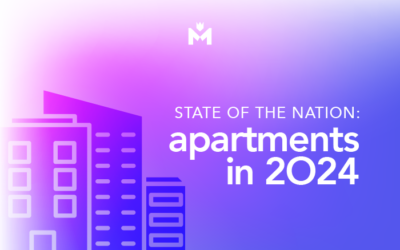Investment properties can be a great way to generate passive income and build wealth over time. However, buying an investment property in New Zealand requires a significant amount of upfront capital (sometimes up to 40% or more), as well as a good understanding of the local property market and lending landscape. In this article, we’ll take a closer look at investment properties and getting a home loan in New Zealand.
What is an Investment Property?
An investment property is a property that is purchased with the intention of generating income (rental yield), rather than being used as a primary residence. Investment properties can take many forms, including rental properties, commercial properties, and vacation homes or baches – often viewed as the Kiwi Dream. In New Zealand, rental properties are the most common form of investment property.
When purchasing an investment property, it’s important to consider factors such as location, rental yield, potential for capital growth, and ongoing maintenance costs. A good investment property should be located in an area with strong rental demand, and should offer a good return on investment over time. Think of places that are starting to become popular, or are already, and have good supporting infrastructure, like access to schools, supermarkets, and public transport.
Getting a Home Loan for an Investment Property
Getting a home loan for an investment property in New Zealand can be more challenging than getting a home loan for a primary residence or an owner-occupied property. Lenders generally require a larger deposit for investment properties, and often have a higher interest rate. Additionally, lenders may have stricter eligibility criteria for investment property loans, so it totally depends on your individual circumstances and what is possible for you.
To increase your chances of getting approved for an investment property loan, it’s important to do your research and shop around for lenders that offer competitive rates and flexible terms. You may also want to consider working with a mortgage broker or financial adviser, who can help you find the right loan for your needs and negotiate with lenders on your behalf. As a mortgage broker or financial adviser isn’t tied into one lender, you will be provided a wider range of better-suited options for you.
In addition to the deposit and interest rate, there are several other costs associated with buying an investment property in New Zealand. These may include legal fees, property inspection fees, and ongoing maintenance and repair costs. It’s important to factor these costs into your budget when considering whether or not to invest in a rental property.
Managing an Investment Property
Once you’ve secured a home loan for your investment property, the next step is to manage the property effectively. This includes finding tenants, collecting rent, and ensuring that the property is well-maintained and in good condition.
Finding tenants can be a challenging process, especially in areas with high competition for rental properties. To increase your chances of finding good tenants, it’s important to price your rental property competitively, advertise in the right places, and conduct thorough background and credit checks on potential tenants. Doing this on your own can also be challenging and tiresome!
Collecting rent is another aspect of managing an investment property. It’s important to set clear expectations with tenants regarding rent payments and to follow up promptly if rent is not paid on time, which will likely involve you setting up a schedule to follow up on rent payments. You may also want to consider hiring a property manager to handle rent collection and other aspects of property management. Rent will be used to pay off the mortgage you have taken out to pay off this investment property, OR to ensure you have additional disposable income to live financially free.
Finally, it’s important to keep your investment property well-maintained and in good condition. This includes conducting regular inspections, addressing maintenance issues promptly, and investing in upgrades and renovations as needed to maintain the property’s value and appeal to tenants. This requires a great deal of additional capital, as we’ve seen with the weather around Aotearoa, there are a lot of things that can go wrong – so your budget will need to accommodate this!
We would usually recommend getting a good property manager so you can let your property do the hard work for you. There’s a heap of ever-changing legislation that is often too hard to keep track of, and as an investment property often has the intention of bringing extra income, another ‘job’ on top of your day-to-day job can be difficult to manage.
Investment properties can be a great way to generate passive income and build wealth over time, but buying and managing an investment property requires a significant amount of upfront capital and ongoing effort. When considering investing in a rental property in New Zealand, it’s important to do your research, shop around for competitive home loan rates, and factor in all of the costs associated with owning and managing a rental property. With the right approach, however, an investment property can be a smart financial move that pays off over the long term.




